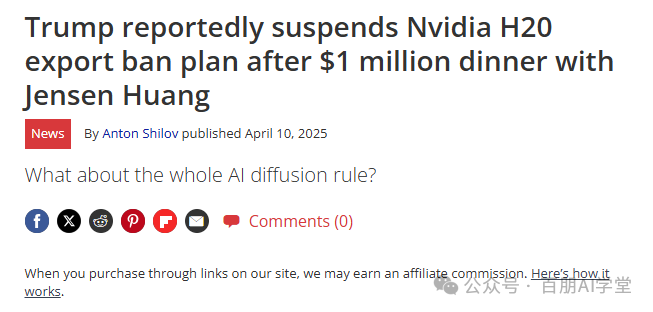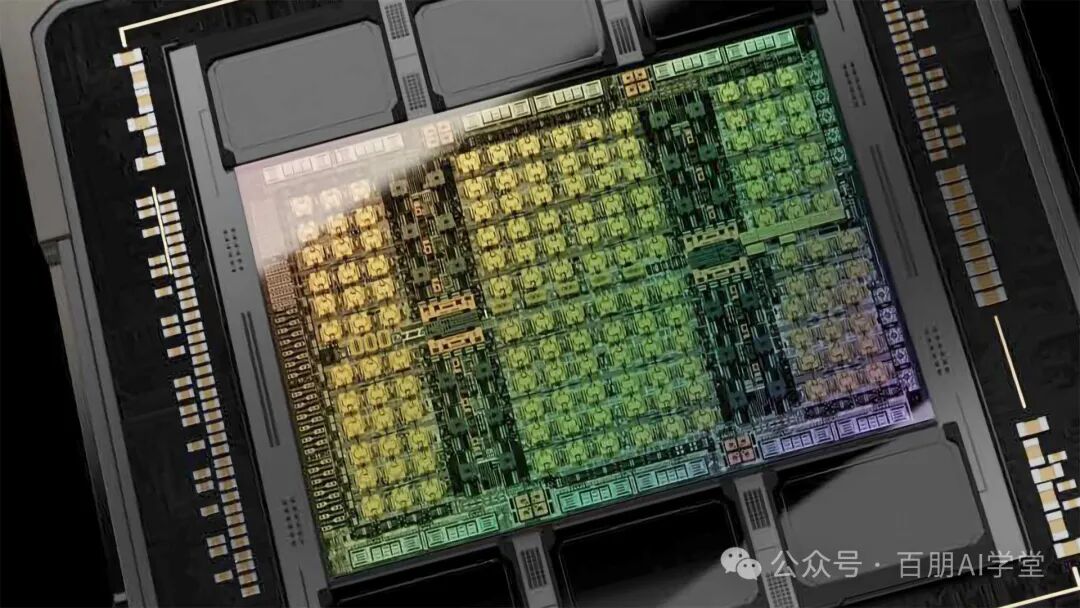On April 16, 2025, according to Bloomberg, the U.S. government announced restrictions on NVIDIA’s exports of the H20 chip to China, requiring an “indefinite” application for export licenses. This sudden policy change directly leads to NVIDIA facing losses of up to $5.5 billion, affecting inventory, procurement commitments, and related reserves.

Previously, NVIDIA’s H20 chip was one of its key products in the Chinese market. The H20 chip is a “stripped-down” AI chip designed by NVIDIA to meet export control performance criteria, primarily used in the AI model inference stage. Despite its limited performance, according to U.S. export regulations, the H20 is still the highest-performing GPU allowed for export to China. In the first quarter of 2025, NVIDIA sold $16 billion worth of H20 chips to Chinese entities, highlighting the importance of the Chinese market to its business.

However, as the U.S. government tightens restrictions on high-performance AI chip exports, NVIDIA’s business has been severely impacted. According to insiders, the U.S. government has spent months preparing to implement new restrictions on H20 chip shipments, which were originally set to take effect as early as this week. NVIDIA has warned that it expects to report approximately $5.5 billion in asset write-downs in the first fiscal quarter, stemming from inventory, procurement commitments, and related reserves associated with the H20 product line. Bloomberg analysts estimate that if the restrictions continue, NVIDIA’s annual revenue could lose between $14 billion and $18 billion, with its share of the Chinese data center business potentially dropping to single digits, far below the performance seen after the H20 went into mass production.
Notably, just a week ago, NVIDIA founder Jensen Huang attended a lavish dinner at Mar-a-Lago at the invitation of Trump. After the dinner, NVIDIA pledged to increase its investment in U.S. AI data centers and announced yesterday that it would invest $500 billion in supercomputing over the next four years. However, shortly after the dinner, the Trump administration decided to suspend the export ban on the H20, but now the ban has been reinstated. According to the U.S. “AI diffusion rules,” China will not be able to obtain any U.S. AI chips through low processing performance exemptions, as all exports require a license and are defaulted to be denied.
The implementation of the H20 chip export ban not only has a significant impact on NVIDIA’s business but also further highlights the importance of AI chips as a core battleground. For Chinese companies, the difficulty of obtaining advanced AI chips will further increase in the future, which will also accelerate the pace of domestic chip research and development and layout.